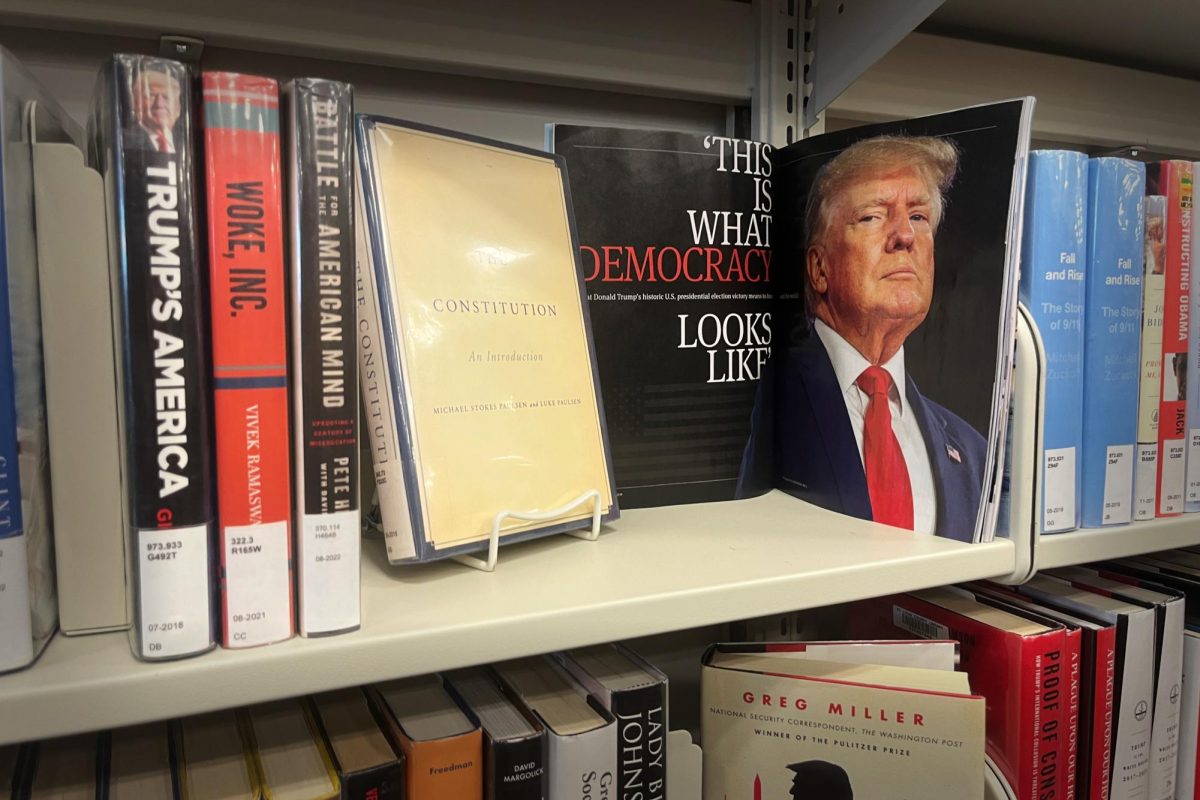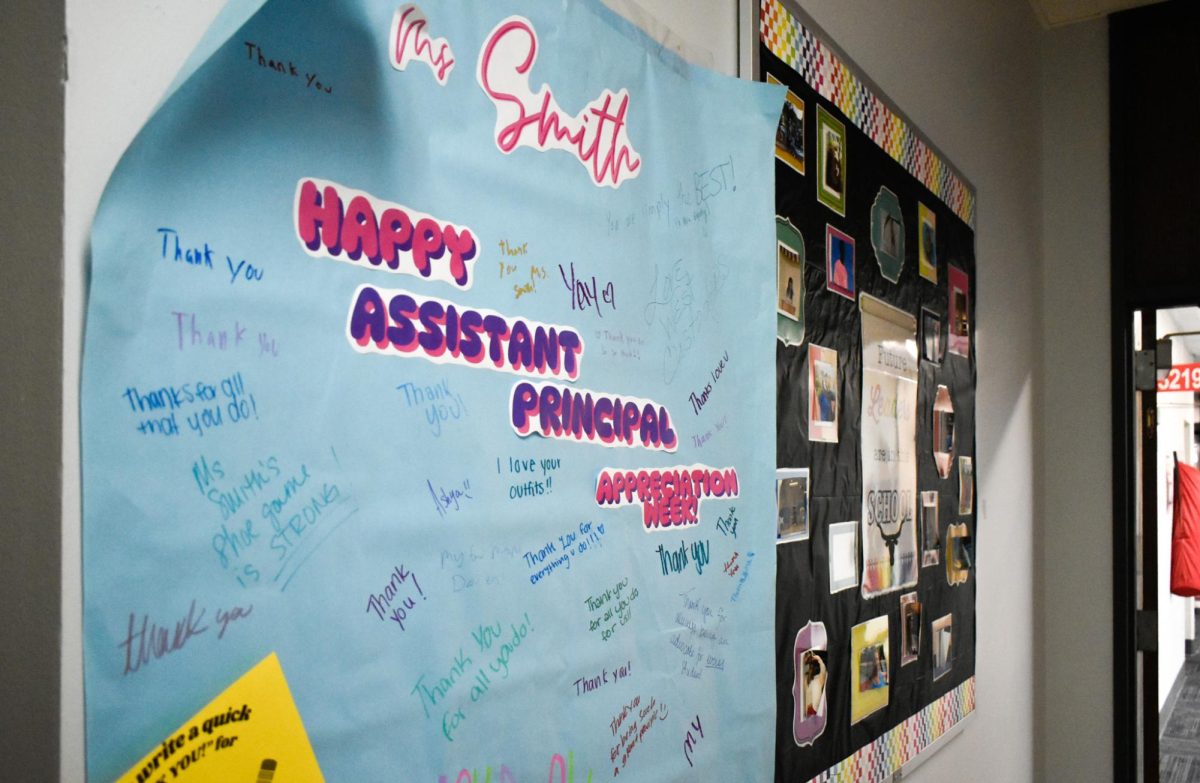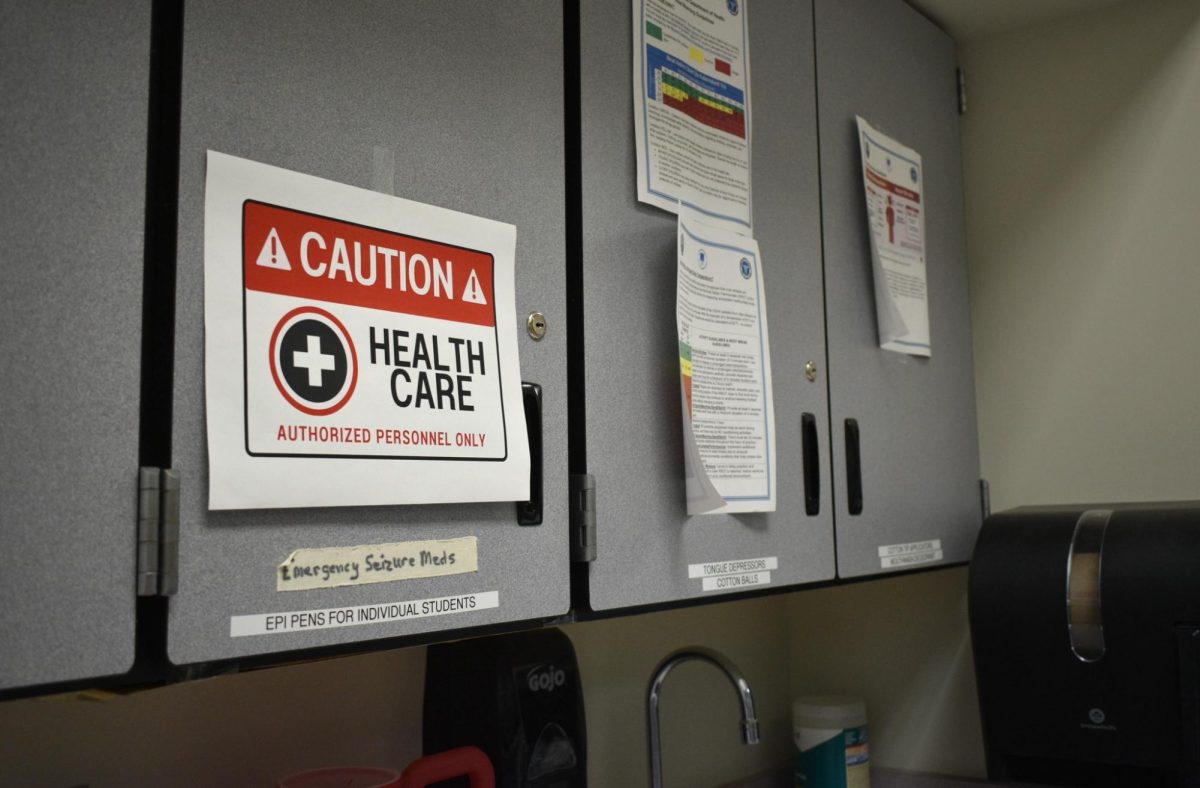On Nov. 5, America made its decision. Former President Donald Trump was re-elected for his second term of presidency and, to little surprise, a majority of Missouri counties sided with this ending. The shift of party control on Jan. 20 will inevitably bring about implications on a variety of national policy issues ranging from the economy to immigration, however, what does this mean to the average Parkway West student?¬Ý
Though Trump’s campaign did not focus heavily on education, the few times it did was to emphasize its ten steps to an ‘ideal education,’ including the termination of the federal Department of Education, the broadening of school choice programs and the elimination of “wokeness” or “left-wing indoctrination” from the curriculum. But, to understand the true ramifications of these plans, context to the Republican stance on education is crucial.
The Heritage Foundation’s Project 2025 is over 900 pages listing a wide range of right-winged policy proposals that greatly expand executive authority for a future conservative administration. During his campaign, Trump publicly claimed to know nothing about the document, even though over half of its 307 authors and contributors have formerly worked for Trump’s administration, campaign, or transition team. Additionally, in recent light, Project 2025 contributors are now obtaining new positions on Trump’s staff. Specifically to the realm of education, within Project 2025, Lindsey Burke — author of the education section — has outlined recommendations to eliminate the Head Start program, defund Title I, codify LGBTQIA+ discrimination, reduce federal funding for students with disabilities and more.
Dismantling the Department of Education
The promise to dismantle the Department of Education is not anything new on the Grand Old Party (GOP) agenda, dating back to the department‚Äôs founding in 1979; yet, through multiple Republican presidencies including Trump‚Äôs first term, the Department of Education has survived and will most likely continue to do so.¬Ý
The department does much for elementary and secondary education, serving over 50 million students across 18,200 school districts: enforcing civil rights protection, monitoring academic performance, overseeing the Free Application for Federal Student Aid (FAFSA) and more. Overall, the department does not dictate what is taught in classrooms ‚Äî a popular public misconception.¬Ý
Proponents of dismantling the Education Department criticize the bloated bureaucracies tied to K-12 education subsidies with little to no academic improvement to show for it as well as the excessive spending on federal student loans contributing to inflation in college tuition. However, abolishing the department is politically difficult, requiring the approval of Congress and great bipartisan support. Although, what do Republicans mean by “abolishing” and subsequent synonyms? Is it simply the rearranging of people and programs to other departments which is the most likely to happen or actually removing the federal government out of education which is truer to the spirit and name? Or, perhaps the answer is turning all of the programs into block grants because just as Burke argues, local schools and families have a much better grasp on their individual situations and needs than the remote federal government does.
Project 2025 combines all of these ideas detailing steps to ultimately return funding and decision-making to the local level. For example, they would transfer any Indian education programs to the Bureau of Indian Education or move FASFA and other federal student loan programs to the Treasury Department. So, what would be the problem with keeping most of these departments but moving them around? According to the Tenth Amendment, any issues or powers not stated in the Constitution are reserved for the states; therefore, with no mention of education in the Constitution, the Republican argument makes sense constitutionally.¬Ý
‚ÄúThe dilemma is right now [these departments] are under one umbrella of education, so their focus is making sure that schools abide by these rules, or that students can access these grants. If we put them as part of other things, then they become part of not education,‚Äù AP Government teacher Mel Trotier said. ‚ÄúAnd do they get the attention? Do they get the voice? Do they get the same emphasis that they would in the Department of Education? There’s that change in focus.‚Äù¬Ý
The Education Department‚Äôs mission ‚Äúis to promote student achievement and preparation for global competitiveness by fostering educational excellence and ensuring equal access.‚Äù Therefore, without the department, students ‚Äî especially the most vulnerable ones ‚Äî as well as educators and schools alike would lose an advocate within the Cabinet to fight for crucial resources and protections. For example, the federal Individuals with Disabilities Act (IDEA) requires schools to support and ensure students with disabilities a free, equal learning opportunity. In 2022, the federal government allocated $12.5 billion in IDEA grants to states. Under Project 2025, IDEA oversight would be transferred to the U.S. Department of Health and Human Services which offers less expertise, has its own priorities and provides no extra funding, all of which make educating students with disabilities significantly more challenging.¬Ý
Over time, this department has become a sort of symbolic distraction in a greater conversation on public education. And the truth of the matter is that we should not be debating straining already tight budgets, worsening existing teacher shortages or causing any further disruptions for students especially as we‚Äôve seen the long-lasting impacts of the COVID-19 pandemic on student‚Äôs learning.¬Ý
Broaden school choice
Another aspect of Trump‚Äôs plan is to advance school choice. This would follow traditional Republican wishes to minimize the federal government‚Äôs impact on educational access ‚Äî and we can see the progress transpiring from his first term.¬Ý
‚ÄúOn the surface, the idea of [taking] your tax dollars and [going] to whatever school you want has gained a lot of traction in the last four years, because of what they perceive as a liberal bend in education. [It‚Äôs] taking money out of the pool; your money’s not just funding your student, it’s going to everybody. And draining that pool makes a bigger difference for all the students versus just you,‚Äù Trotier said.
Several states such as Maryland and Ohio have implemented similar private school vouchers. However, data will show that, in reality, these vouchers are not implemented as intended: those who can already afford to send their children are the primary beneficiaries. Thus the question is posed: are we propagating uniqueness in the status quo?
‚ÄúI think it’s great that people want to send their kids to private school if you have the money, but if you don’t, there’s this great option of public school,‚Äù senior Gianna Lionelli said.
“Parents Rights” to end wokeness
Finally, Trump’s vision to reshape American education is to eliminate any lessons related to gender identity and critical race theory and abolish diversity and inclusion offices. He believes this content to be politically motivated, filled with “woke” radical leftist educators. In recent years, the term ‘woke’ has shifted from its original definition within the Black community to a more pejorative term used by Republicans to refer to anything deemed too progressive.
‚ÄúAnytime someone uses the term wokeness, I balk at that because it’s become one of those umbrella terms like ‚Äòsnowflake‚Äô a couple of years ago. When I hear phrases like ‚Äòend wokeness,‚Äô to me, that is kind of the same as saying ‚Äòtruffula trees,‚Äô because I think the meaning has been lost in phrases like that,‚Äù English teacher Dan Barnes said.¬Ý
The primary implication hidden behind the word is censorship, something that is already being felt nationwide, specifically taking into account legislation such as the ‘Don’t Say Gay’ bill that was passed in Florida and the restriction of course availability such as the removal of AP African American Studies in South Carolina. Society as a whole has become complacent in the absence of subjective conversations and the blanket excuses covering them.
At the end of the day, no one knows what a Trump victory has in store for the nation. Throughout our waves of uncertainty, however, one thing remains constant: his methods of political action are not beneficial to federal education. Beyond a lack of funding, disproportionate benefits, and other monetary concerns, through the imposition of one-track mindsets, curriculum and content leave our future as a democracy at stake.¬Ý
‚ÄúI think [education has] become politicized far too much. I believe that there are some things in history that we just need to know about, and some things that, no matter what side you’re on, you need to be educated about,‚Äù senior Shirah Ramaji said.


![Dressed up as the varsity girls’ tennis coach Katelyn Arenos, senior Kate Johnson and junior Mireya David hand out candy at West High’s annual trunk or treat event. This year, the trunk or treat was moved inside as a result of adverse weather. “As a senior, I care less about Halloween now. Teachers will bring their kids and families [to West’s Trunk or Treat], but there were fewer [this year] because they just thought it was canceled [due to the] rain. [With] Halloween, I think you care less the older you get,” Johnson said.](https://pwestpathfinder.com/wp-content/uploads/2025/10/DSC00892-1-1200x800.jpg)
![Leaning on the podium, superintendent Melissa Schneider speaks to Parkway journalism students during a press conference. Schneider joined Parkway in July after working in the Thompson School District in Colorado. “My plan [to bond with students] is to get things on my calendar as much as possible. For example, being in [classes] is very special to me. I am trying to be opportunistic [meeting] kids [and] being in [the school] buildings. I have all the sports schedules and the fine arts schedules on my calendar, so that when I'm available, I can get to them,” Schneider said.](https://pwestpathfinder.com/wp-content/uploads/2025/09/IMG_5425-1200x943.jpeg)


![Red, white and blue, the American flag holds the values of our democracy. The fight that we once endured has returned, as student journalists and senior correspondents across the country are losing their voices due to government control. “[Are] the White House and [the] government limiting free speech [and] freedom of the press? Yes [they are],” chief communications officer of the Parkway School District and former journalist Elisa Tomich said.](https://pwestpathfinder.com/wp-content/uploads/2025/03/Untitled-design-14.jpg)
![A board in the Parkway West counseling department displays pennants of selective universities. With a wide range of students interested in attending, it’s important that these schools have clear priorities when deciding who to admit. “[Washington University] had the major that I wanted, psychology, philosophy, neuroscience. That's a holistic study of the brain, and [WashU is] the only college in the world that offers that. That's the main reason I wanted to go; I got into that program,” senior Dima Layth said.](https://pwestpathfinder.com/wp-content/uploads/2025/02/Flag-1.png)

![Within the U.S., the busiest shopping period of the year is Cyber Week, the time from Thanksgiving through Black Friday and Cyber Monday. This year, shoppers spent $13.3 billion on Cyber Monday, which is a 7.3% year-over-year increase from 2023. “When I was younger, I would always be out with my mom getting Christmas gifts or just shopping in general. Now, as she has gotten older, I've noticed [that almost] every day, I'll open the front door and there's three packages that my mom has ordered. Part of that is she just doesn't always have the time to go to a store for 30 minutes to an hour, but the other part is when she gets bored, she has easy access to [shopping],” junior Grace Garetson said.](https://pwestpathfinder.com/wp-content/uploads/2024/12/DSC_0249.JPG-1200x801.jpg)
![Senior Sally Peters stands in the history hallway, contemplating her choices in the 2024 United States and Missouri elections on Nov. 5. As a member of Diplomacy Club, Peters has discussed key candidates and issues in contemporary American politics. “[As students], we're starting to become adults. We're realizing how much the policies that are enforced and the laws that make it through the House and Senate are starting to affect us. [Opportunities such as] AP [U.S.Government] and Diplomacy Club [make elections feel] a lot more real,” Diplomacy Club vice president and senior Nidhisha Pejathaya said.](https://pwestpathfinder.com/wp-content/uploads/2024/10/Flag-1-1.png)
![Mounting school pressure can leave many students overworked and overstressed. Schools must give students the necessary resources to help assuage student mental health issues and prevent the development of serious crises. “The biggest thing [schools] can do [to protect student mental health] is offer more time [to do work], like a study hall, or offer more support from teachers so that students don't feel stressed out and can get help in areas that they need,” senior Bhavya Gupta said.](https://pwestpathfinder.com/wp-content/uploads/2024/09/unnamed-4.jpg)

Serena Liu • Dec 2, 2024 at 10:15 pm
I really enjoyed reading this article. It was very well written and researched!